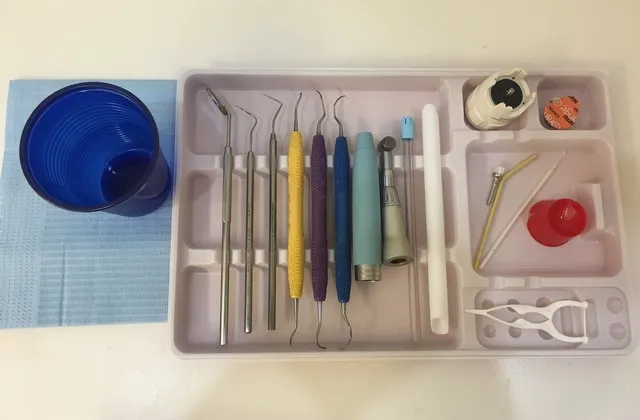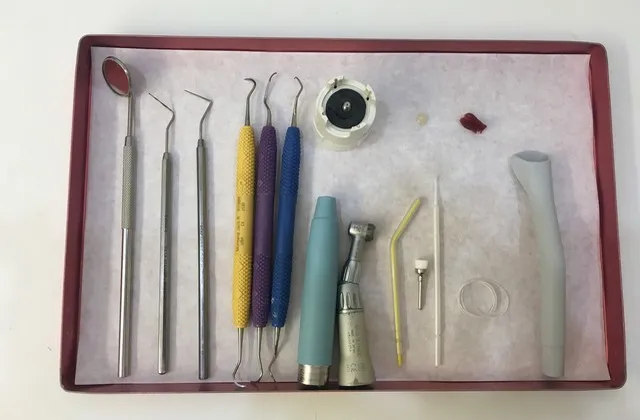The Dental field has largely taken a back seat in these discussions as cross infection control is such an important part of the day to day care of patients and clinicians alike and plastic has a huge role in the provision of barrier defence. However there are subtle changes that we could all make that will cut plastics use, reduce expensive incineration fees (and pollution) for contaminated waste, and minimise the toll that we as clinicians take on the environment.
I took a day to trial reducing plastic waste in my own dental surgery and of the twenty patients that I saw that day, nobody complained about the lack of cup to rinse with, and just the one lady was concerned about her shirt potentially getting splashed - but as it didn’t, she was also happy. Nobody reported a feeling of lack or reduction in service and a number of the patients commented that they had also been considering their plastic waste - including type of floss and recyclable toothbrushes.
Here are the easy swaps I made (working within HTM01-05), can you tell?


- No cup to rinse - we washed out with 3/1 and suction
- No plastic backed bib (unless we really thought there would be splashes - we would use tissue)
- Autoclave-able suction tube
- Prophy-paste from a jar rather than individually packaged
- Coco-floss rather than plastic floss picks
- Using a paper tray liner rather than plastic tray
- Putting the fluoride varnish onto the tray liner rather than using the dapens (or using an autoclave-able one)
There are more changes that conscientious Dental practices can make - pouching regularly used instruments only at the end of sessions, going paper - free at the reception desk and opting for reusable eye protection - easy swaps that can be done relatively cost effectively and without delay.
We also recommend using biodegradable coco or bamboo floss and using cruelty free kingfisher fluoride toothpaste - which comes in biodegradable packaging.
What other ideas have you had in your own surgeries?
